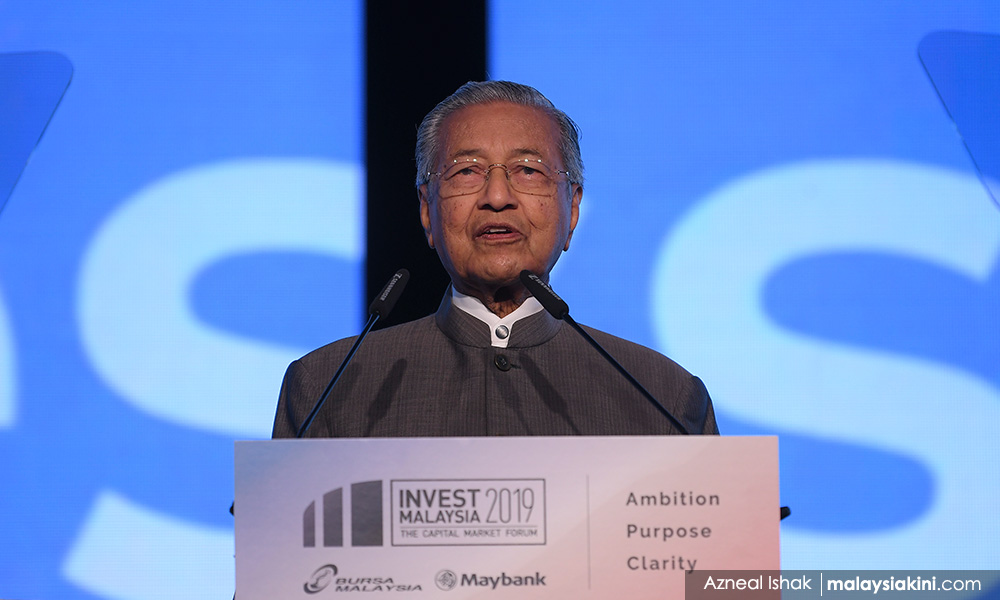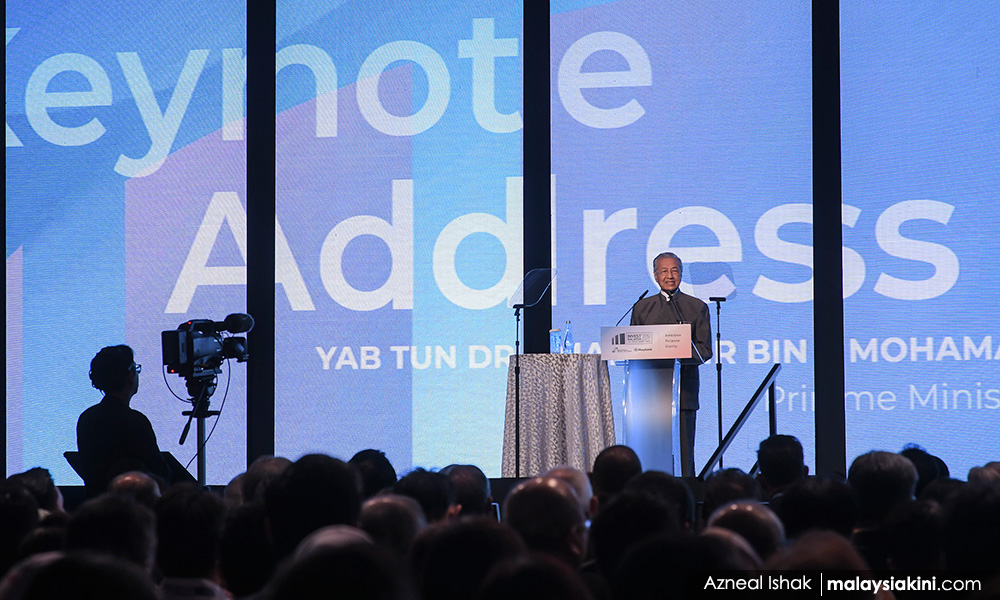
Malaysia may list certain state-owned entities to cut government debt and liabilities, Prime Minister Dr Mahathir Mohamad said today as the country seeks new revenue sources to boost its fiscal position.
Mahathir, elected in last year’s stunning general election upset, has blamed the previous administration of Najib Abdul Razak for saddling Malaysia with debt and liabilities of more than RM1 trillion (US$245.52 billion).
A government panel to cut debt is looking at strategies, such as "identification of opportunities on potential asset monetisation, which means mature unlisted government entities may be listed in the stock market," he said.
State-linked companies could also pare equity stakes, Mahathir told a conference of investors in Kuala Lumpur.
"The key guiding principles for monetising any of our assets is that the disposal or monetisation must never be done at fire-sale prices, and any disposal of shares, monetisation of assets, auctions or other measures will be done in an orderly manner."
However, he did not identify specific companies or fix a timeframe for the plan.
Sovereign wealth fund Khazanah Nasional Bhd announced a new strategy this month, saying it was gearing up to be a "long-term real return provider" to the government through its commercial investments.

Last month Reuters reported, citing sources, that Khazanah's new strategy aimed at delivering more cash to the government by pruning stakes in non-strategic assets.
Some analysts have also speculated the government could list a small portion of its stake in state energy firm Petronas to generate revenue.
Petronas is the sole manager of Malaysia's oil and gas reserves. Although some of its subsidiaries are listed on the national stock exchange, Petronas is fully owned by the government.
Finance Minister Lim Guan Eng told Reuters last year the government had no immediate plans to sell stakes in state-owned companies, but did not rule out the possibility in the future.
Lim and Mahathir have blamed corruption scandals in the previous administration for Malaysia's large debts. The fiscal situation was also hurt after the new government scrapped an unpopular consumption tax, in line with a campaign promise.
Former prime minister Najib has been slapped with dozens of corruption charges since his defeat in May 2018, many related to alleged money laundering at state fund 1MDB.
He has pleaded not guilty and has consistently denied any wrongdoing.
- Reuters


No comments:
Post a Comment
Note: Only a member of this blog may post a comment.